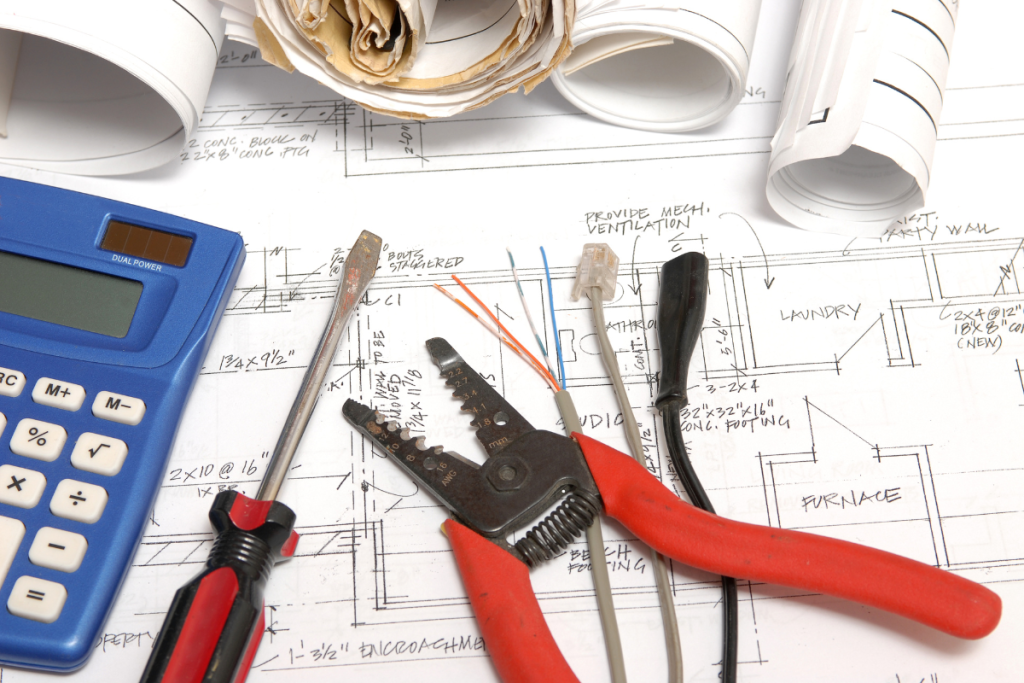 Introduction to Electrical Construction Estimator
Introduction to Electrical Construction Estimator
In the construction industry, accurate cost estimation is critical to the success of any project. Among the various specializations within this field, the role of an electrical construction estimator is particularly significant. This article explores the responsibilities, skills, and importance of an electrical construction estimator, highlighting their crucial contribution to construction projects.
What is an Electrical Construction Estimator?
An electrical construction estimator is a professional responsible for forecasting the costs associated with the electrical components of a construction project. This includes everything from wiring and lighting to power systems and telecommunications infrastructure. Their primary goal is to provide a detailed and accurate estimate that ensures the project remains within budget while meeting all technical requirements and safety standards.
Responsibilities of an Electrical Construction Estimator
- Project Analysis: The first step in the estimation process involves thoroughly analyzing the project plans and specifications. The electrical construction estimator reviews architectural drawings, electrical schematics, and other project documents to understand the scope and requirements of the electrical work.
- Material Cost Calculation: Estimators must calculate the cost of all materials needed for the project. This includes wiring, conduits, switches, outlets, circuit breakers, lighting fixtures, and other electrical components. They must consider current market prices and availability to provide an accurate estimate.
- Labor Cost Estimation: Determining labor costs is another crucial aspect. The electrical construction estimator assesses the amount of labor required, the skill levels needed, and the current labor rates. They also factor in any overtime or specialized labor costs that may be necessary.
- Equipment and Tools: In addition to materials and labor, the estimator must account for the cost of any specialized equipment and tools required for the electrical work. This includes everything from basic hand tools to advanced diagnostic equipment and safety gear.
- Subcontractor Costs: If the project requires subcontractors for specific tasks, such as installing specialized systems or performing high-voltage work, the estimator must include these costs in the overall estimate.
- Contingencies and Risk Management: To mitigate potential risks, estimators include contingency allowances in their estimates. These contingencies cover unforeseen expenses such as material price increases, project delays, or unexpected site conditions.
- Bid Preparation: For projects that require competitive bidding, the electrical construction estimator prepares and submits detailed bid proposals. These proposals outline the estimated costs and project timeline, helping clients make informed decisions.
- Project Monitoring: Once the project begins, the estimator’s role often extends to monitoring actual costs against the estimated budget. This helps in identifying discrepancies early and implementing corrective measures to keep the project on track.
Skills Required for an Electrical Construction Estimator
- Technical Knowledge: A deep understanding of electrical systems, components, and installation methods is essential. Estimators must be familiar with industry standards, building codes, and safety regulations.
- Analytical Skills: Estimating requires the ability to analyze complex data, interpret technical drawings, and make accurate cost predictions. Estimators must consider various factors and ensure their estimates are comprehensive.
- Attention to Detail: Precision is crucial in cost estimation. Even a minor oversight can lead to significant budget overruns. Estimators must meticulously review all project details to provide accurate estimates.
- Mathematical Proficiency: Estimators rely heavily on mathematical calculations to determine costs. Proficiency in arithmetic, algebra, and geometry is necessary for accurate estimations.
- Effective Communication: Estimators must communicate effectively with project managers, engineers, contractors, and clients. Clear communication ensures that all stakeholders are aligned and reduces the likelihood of misunderstandings.
- Problem-Solving Abilities: Construction projects often encounter unexpected challenges. Estimators need to think critically and develop solutions to address issues without compromising the budget or timeline.
Importance of an Electrical Construction Estimator
- Budget Management: Accurate cost estimates are fundamental to creating a realistic project budget. Electrical construction estimators ensure that all necessary costs are accounted for, preventing unexpected expenses that could derail the project.
- Project Feasibility: Before embarking on a project, clients need to know if their vision is financially feasible. Detailed estimates provide a clear picture of the costs involved, helping clients decide whether to proceed, modify the design, or seek additional funding.
- Resource Allocation: Efficient resource allocation is crucial for the success of any construction project. Estimators ensure that the necessary materials, labor, and equipment are available when needed, preventing delays and optimizing project timelines.
- Competitive Bidding: In competitive bidding scenarios, accurate estimates give contractors a competitive edge. Well-prepared bid proposals increase the chances of winning contracts and securing business opportunities.
- Risk Mitigation: Identifying potential risks and uncertainties helps in creating contingency plans. This proactive approach reduces the likelihood of delays and cost overruns.
- Client Confidence: Providing clients with detailed and accurate estimates builds trust and confidence. When clients have a clear understanding of the project’s costs and potential risks, they are more likely to be satisfied with the final outcome.
Challenges Faced by Electrical Construction Estimators
- Market Fluctuations: The cost of materials and labor can fluctuate due to market conditions. Estimators must stay informed about these changes and adjust their estimates accordingly.
- Regulatory Changes: Building codes and regulations can change over time, affecting project costs. Estimators need to stay updated with these changes to ensure compliance and accurate cost predictions.
- Technological Advancements: The construction industry is evolving with new technologies and materials. Estimators must continuously update their knowledge to incorporate these advancements into their estimates.
- Client Expectations: Managing client expectations can be challenging, especially when there are budget constraints. Estimators need to communicate effectively and provide realistic estimates to avoid misunderstandings.
The role of an electrical construction estimator is integral to the success of any construction project. Their expertise in cost analysis, risk management, and budget control ensures that projects are completed within budget and on time.
By providing accurate and detailed cost estimates, they help clients make informed decisions, optimize resource allocation, and achieve their construction goals. In an industry where precision and planning are paramount, the electrical construction estimator is an invaluable asset, guiding projects from conception to completion with financial prudence and professionalism.
Are you looking for the best estimating services in USA?
Look no further than “https://zionestimating.com”
They are offering top-notch services like;
- Construction/cost estimation
- Budget planning
- Material takeoff
- Equipment estimation
and further more!!!
Here are some more information for your convenience:
Location:7083 Hollywood Blvd, Los Angeles, CA 90028, USA
Phone no. : +1 718-427-9941 || +1 562-383-6177
Email: [email protected]
Directions:
https://maps.app.goo.gl/EpPyhRa9rPMDR1kv8
Visit their blogs and site
https://zionestimating.com for the latest updates and service tips!
